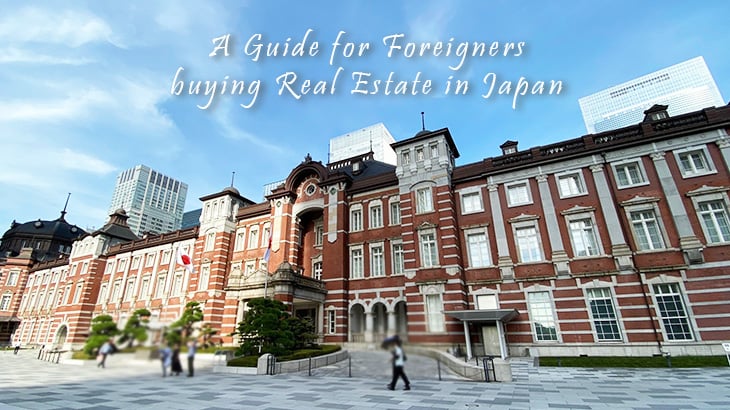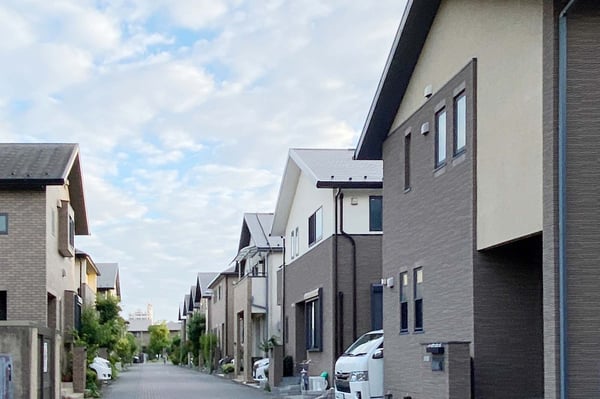Basically, the procedure of buying real estate in Japan is more or less similar to other countries. One of the biggest possible obstacles is the language hurdle, as all documents related to property transactions are in Japanese.
This article is going to give a brief overview of the process for acquiring a property in Japan. This might be helpful for those who are new to the property market in Japan and are interested in buying a property in Japan for either living or investment.
■ Why choose Japan as one of the investment destinations?
As one of the biggest global markets in the world, the property investment market in Japan has been attracting the interest of overseas investors in recent years. Japan is said to be a "safe heaven" for wealthy individuals in Asia. The attractiveness of Japan’s property market is based on its well-established and stable social, political, and economic fundamentals. There are several reasons for considering buying a property in Japan.
1. Stable Market Returns
With the well-established rental system and high occupancy rate in Tokyo, the long-term yields from the residential sector remain stable. According to Global Property Guide, the annual gross yield of Japan is higher than other Asian areas like China, Hong Kong and Taiwan.
2. Housing Market Growth
Japan’s nationwide residential property price index rose by 6.9% in 2021 as per the "Land Institute of Japan". In Tokyo metropolitan area, the average prices of existing condominiums rose strongly by 7.1% which indicates the resale market is continuing to grow.
3. Active Property Market
Ranked as No 3 in GCPI, Tokyo continues to solidify its status as a global destination for high-quality properties. With the growing population inflow, the demand for land and property in Tokyo is increasing yearly, topping the overall property transaction rate in Japan and generating reliable returns on investment.
4. Business Environment
With the stability of Japan's social, political, and economic institutions, the well-established property market system allowed foreign investors to enter the market without any barriers. Unlike some other countries in the world, there are no legal restrictions for both resident and non-resident foreigners to own property in Japan.
■ Can a foreigner buy a real estate in Japan?
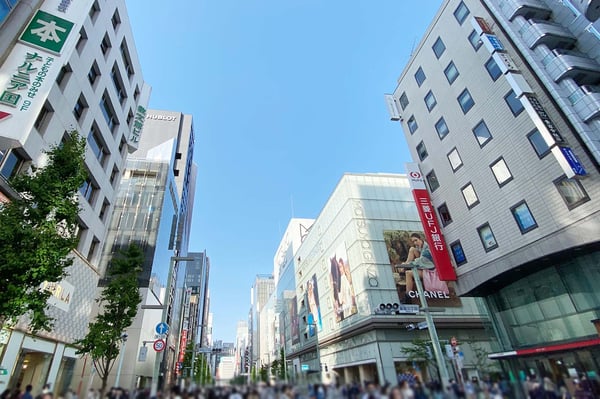
By understanding the reasons behind for considering buying a property in Japan, one might have queries that can a non-resident foreigner or foreign resident buy a property in Japan. This is a very common question asked by foreigners when considering buying a property in Japan.
First of all, one has to know the following facts:
● Generally, there is no legal restriction for a foreigner to buy a property in Japan.
● Whatever the foreigner is a resident in Japan or a non-resident who resides in overseas,
he/she can still buy a property in Japan without any different.
● As Japan is a freehold property market, one can buy a real estate with ownership rights to land.
● There is no connection to acquiring a residence visa with buying properties in Japan,
which means that buying a real estate will not entitle to any residence visa.
● For those foreigners who would like to get financing for acquiring a property in Japan,
it will be most likely favour to those with a permanent residence visa or with a Japanese spouse.
■ What is the procedure for acquiring a property in Japan?
Basically, the procedure of buying a property, for living or investment, is not much different between Japan and other countries. It is simply to list out the requirements of the preferred property, find a real estate agency to search for the preferred property, have a site visit to the property, or someone might just take a look at the photos, then make the buying decision, sign the contract, make the payment, and finally get the key to the property.
However, there are still some rules, and some points have to be taken into consideration when considering buying a property in Japan. These will be discussed in each step of the following buying procedure. The procedure can be divided into 9 steps.
● Step 1: Conduct property research
● Step 2: Choose and decide on a property
● Step 3: Determine your financing options
● Step 4: Make an offer to purchase the property
● Step 5: Submit all necessary documentation
● Step 6: Prepare for the deposit payment
● Step 7: Sign the purchase contract
● Step 8: Settle the balance payment
● Step 9: Get the property key
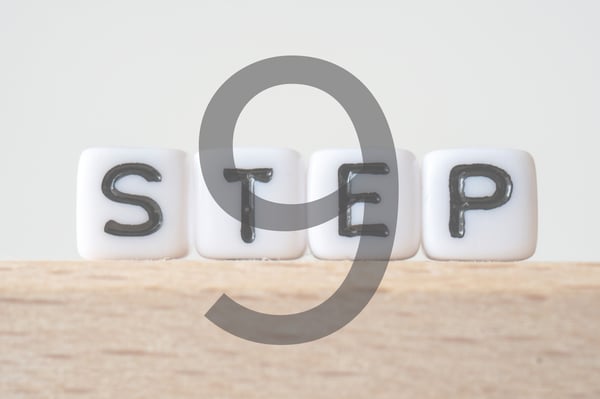
● Step 1: Conduct property research
If you can understand Japanese and have some knowledge about the property market in Japan, it will be very easy to do research on the internet. However, it is assumed that most foreigners do not understand Japanese, so even if you are new to the Japanese real estate market, it is best to look for websites with English versions or choose a real estate agency that can provide multilingual service and/or service to foreign customers, such as Hokushin Fudosan Group. It is an all-round real estate agency with over 55 years of experience in the real estate market. Their agents specialize in overseas customers and can communicate in English, Chinese, and Cantonese.
It is better to get a consultation from a real estate agency to get more information about the property market in Japan and to understand the general process of buying a property. It is also suggested to list out the requirements for the desired property, such as budget, location, type of property, size, etc.
● Step 2: Choose and decide on a property
After you have selected the real estate agency, the agency will provide you with different property options based on your budget and specifications. It is always better to review different options and make comparisons. If the situation allows, it is encouraged to have a site visit of the property, although no preview can be arranged if the property is occupied. In the event that it is difficult to arrange a site visit in person, it is suggested to request the agency to provide more information about the property, such as photos and videos of both the property and the surrounding area.
● Step 3: Determine your financing options
Once you have decided to buy a designated property, it is important to select the proper financing options as this will affect the transaction time and the possibility to proceed further with the transaction. If you plan to buy the property with cash, the process will be less complex, and the transaction time might be shortened. However, if you plan to get a mortgage for the property, it will require more documents and a longer application time. As mentioned before, the possibility of a foreigner getting a property loan will most likely favour to those with a permanent residence visa or with a Japanese spouse. If you are a non-resident, it will be very difficult to get a mortgage in Japan, though it is always on a case-by-case basis. It is suggested that for a non-resident foreigner, it is best to discuss it with your local financial company before making an application to buy the real estate.
 ● Step 4: Make an offer to purchase the property
● Step 4: Make an offer to purchase the property
If you are going to buy a property by cash or mortgage, you have to submit a letter of intent to express your intention to buy the property. This is one of the transaction procedures that might affect your chance to get the property. If there are several potential buyers at the same time, the property owner will normally choose the buyer based on application order. Your agency will give advice and provide you with a rough calculation of the total amount required to proceed with the transaction for your consideration first. Then, the agency will help to submit the letter of intent with related documents based on your confirmation. Please note it is better to express your desired price to the agency before the submission of the letter of intent, and there is no cost or payment incurred at this stage.
● Step 5: Submit all necessary documentation
Your agency will inform you once the property owner has accepted your application and the list of documents required. Be aware that if you would like to withdraw the decision after your application has been accepted by the property owner, it might affect your credibility and the relationship with the agency. Therefore, you have to give it serious consideration before submitting the letter of intent.
● Step 6: Prepare for the deposit payment
When you are preparing the required documents, you have to prepare the payment for the deposit at the same time. This payment has to be settled before signing the purchase contract. If you are living overseas, it is suggested to make the transfer of payment in advance as time is always incurred for overseas payment transfer. The deposit amount will be around 5-10% of the property price and this deposit will be part of the property price.
● Step 7: Sign the purchase contract
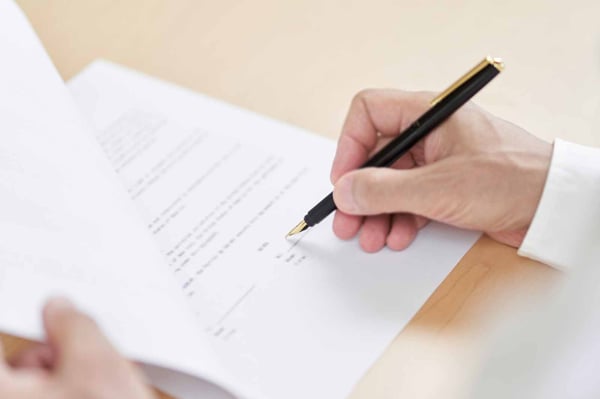
After receiving all the required documents, the agency will proceed further with the purchase contract and related transaction documents. When all the documents are ready, the agency will arrange a meeting with the presence of a judicial scrivener for signing the contract. Before signing the contact, the agency has to elaborate the content on the document of "Explanation of Important Matters" verbally. This document is a legal disclosure document prepared by the real estate agency, which includes all details about the property. Under Japanese law, the content of this document should be delivered to the buyer prior to the signing of the contract. It is important for the buyer to understand and accept all the content stated in this document. Again, as this document is written in Japanese, a trustworthy agency is vital to deliver the content in a communicable language. Once the buyer confirms this document, the contract signing can proceed.
● Step 8: Settle the balance payment
After signing the contract, the buyer will receive a set of original copies of all related documents. The buyer will also receive a payment request for the settlement of the balance of the property price before a designated date. It is important to settle the payment by the designated date as a penalty fee might be incurred for late settlement.
● Step 9: Get the keys of the property
After receiving the final payment, the agency will inform the legal scrivener to arrange the registration of the ownership transfer. The property will be legally under your rights after the completion of registration. Finally, you will receive the keys of the property.
■ Summary
The above-mentioned purchase procedures for property in Japan are just a brief guide for those who are prepared to buy a property in cash. Other than some specific points discussed in each step, the general process of making property purchases is not much different from other countries, and there is almost no difference between Japanese and foreigners. As communication and written documents are important during the process, it is important to find a professional real estate agency with rich experience in the property industry that is trustworthy and communicable.
~ END ~
If you would like to learn more about property investment in Japan, please click here. >
You might have interest to read the following articles as well:
○ What is the most updated land value in Tokyo and the changes in 5 years ?
○ NEW OR OLD? Which one is better for property investment in Japan?
○ Why Reinforced Concrete (RC) Residential Building is good for long-term investment?.
○ What are the costs incurred when buying a property in Japan?.
○ What is 1R, 1K, 1DK and 1LDK?
(REF: B-PI-E04



